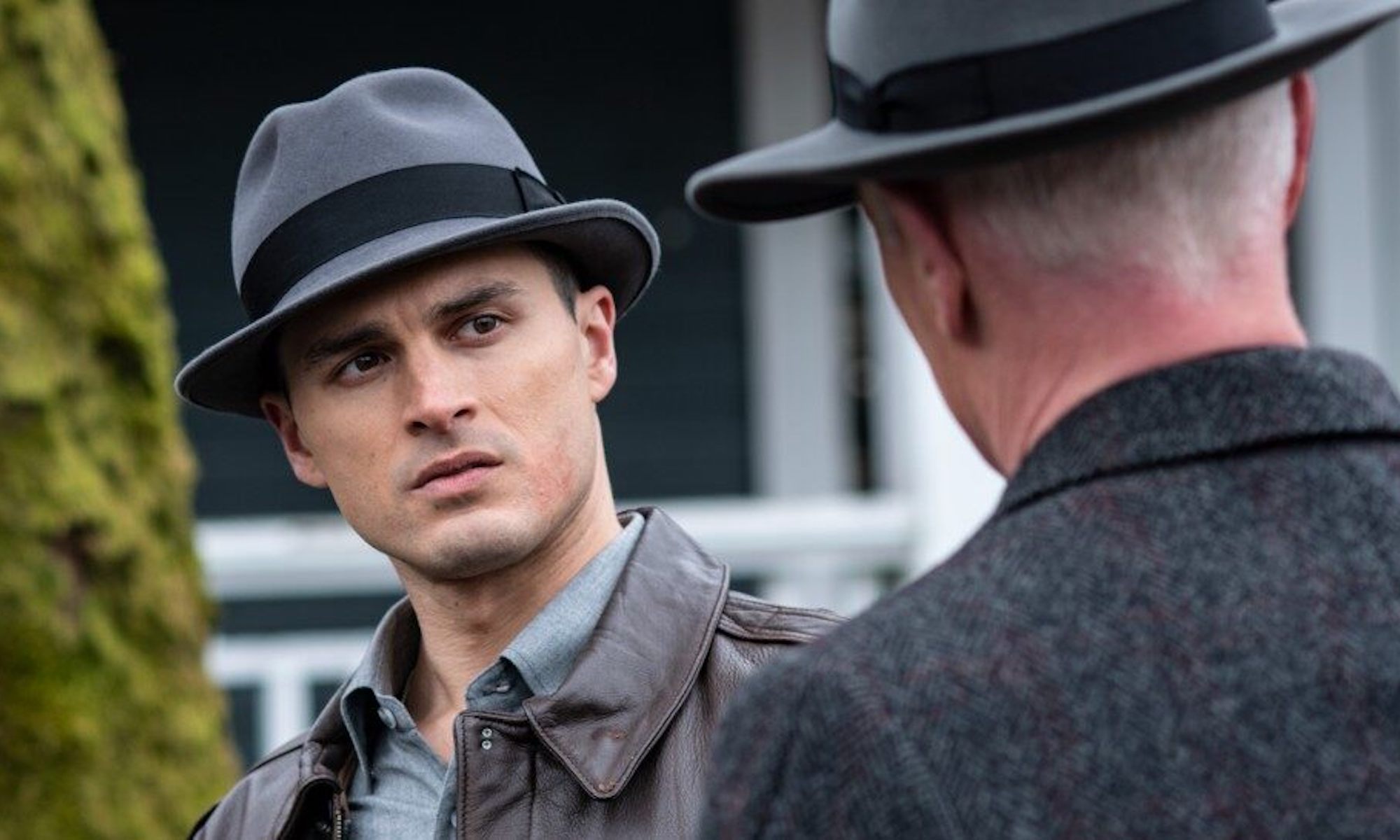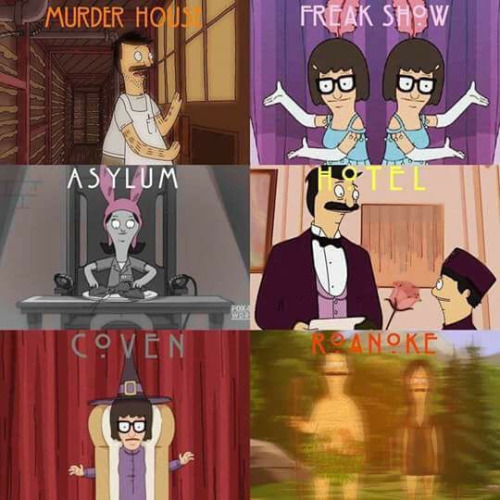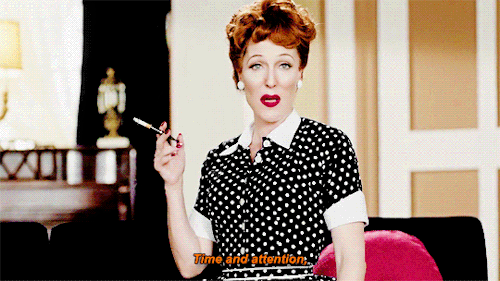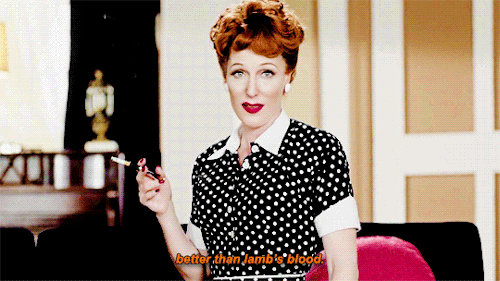I stumbled upon this wonderful piece while going down another Internet Rabbit Hole and found it too good not to pass on—because who among us does not love The Golden Girls?
About a year ago, I interviewed a handful of writers from The Golden Girls about their experiences on the show. The piece did fairly well, mostly because a certain sort of '80s child will reflexively click on anything Golden Girls-related but also maybe because I got a few good anecdotes out of the writers, including the best Bea Arthur story I'd ever heard. The pieced was published in Frontiers, however, and that magazine has ceased to exist—like, in any form. It's even gone from the Google cache, weirdly, and the original post now seems to be completely inaccessible.
Because I really liked this piece and because someone recently reached out to me asking if I had a copy of the text, I figure some other people might still like to read it. Here's the writer's room oral history piece in its entirety.
St. Olaf and Big Daddy and thereabouts, I guess.
Thank You for Being a Friend — A Golden Girls Oral History
More than 20 years later, the ladies are still sharing cheesecake, still talking life lessons out on the lanai and still making fans laugh. The final episode of The Golden Girls aired May 9, 1992, but thanks to around-the-clock reruns and a devoted fan base, Dorothy, Rose, Blanche and Sophia have endured in a way other TV characters haven't. From the show's first season, The Golden Girls has especially enjoyed popularity among gay audiences. (L.A.'s Golden Girlz Live is perhaps the greatest realization of that popularity—the shining brooch on the Dorothy Zbornak ensemble that is Golden Girls fandom, if you will.)
In honor of the show's continued success and its unique appeal to gay viewers,Frontiers spoke with some of the show's writers about what sets the queen of sitcoms apart from the rest. Featured in this interview are Mort Nathan, co-executive producer and writer; Jamie Wooten, producer and writer; Winifred Hervey, co-producer and writer; Stan Zimmerman, writer; and Jeff Duteil, writer of the "Dorothy's lesbian friend" episode.

Mort Nathan, on starting on the show from day one with writing partner Barry Fanaro: We took the job knowing it would be writing for characters in their 60s, but the actresses were very skeptical. I remember that when we met Bea Arthur, she looked at us and said, "You've got to be kidding. How can these children write for us?" I told her, "Bea, give us a month. We'll figure it out." She said a month was fair, and then Betty White said, "Not one more day, darling."
Winifred Hervey: These were ladies who had done Maude and Mary Tyler Moore. Estelle Getty had been on Broadway. These were substantial women, who'd had people like Norman Lear write for them, and they didn't know that these people who were 25, 26 years old could write for them. But it worked. They got past that and they loved us.
Nathan: These women had a chance at revitalizing their careers, and they wanted to make sure they were in good hands. When my writing partner and I left after four years, though, it was as if we were going off to war. They were very upset. They loved us, and we loved them right back.
Hervey: When it was explained to me in the beginning, I think it was still being called Miami Nice. But the cast — they could have said the show was about anything and I would have signed up just to work with these women. And it was created by Susan Harris, who at the time was one of the brightest comedy writers in Hollywood. She had done Soap and Benson, and to work with Susan and [executive producers] Paul Junger Witt and Tony Thomas, that was a huge honor.
Stan Zimmerman: Casting those four — it was just magic in bottle. I remember back then, we didn't have computers to look up the ratings. Remember, we didn't know if it was going to be a hit. We knew it was funny, but you never know. And we wouldn't know until we got in Monday what the ratings were. And they would say, "We're No. 15 this week." And we'd all go crazy. And next week they'd say, "We're No. 8." And then it was, "We're No. 1." And then it was "We're No. 1" again.
Nathan: The ladies were happy to be at the top of their craft for a second time. Bea, Betty and Rue McClanahan were all big stars before, but work had gotten sporadic. But Golden Girls made them stars again, and they loved it — not because of their egos but because of the work. Sometimes the shows were three, four, five minutes too long just because the live audience's laughs were so huge. Those people had such a great time, which means the ladies had such a great time.
Jeffrey Duteil: The show had a huge gay following — and right away, too. I remember getting ready on Saturday nights. We'd go meet friends at the bars or whatever, and while we were getting ready, we'd watch The Golden Girls. A lot of the gay bars back then, even Revolver, would tape the episode and then show it on the screen. A lot of them had viewing parties — even Golden Girls cocktails. And this was back in the first season.
Jamie Wooten, who joined the show with writing partner Marc Cherry in the fifth season: Marc and I watched a lot of television, and Golden Girls was our favorite show. We pitched an idea about Blanche's dead husband having fathered an illegitimate child. It went well and they asked us to join the staff. It was surreal. We couldn't believe we got onto our favorite show.
Zimmerman, on joining with writing partner James Berg: We came in and pitched a whole bunch. We were scared to death, and they just said, "No, no, no." We were literally out the door, and I turned around and said, "What if Rose's mother comes to visit?" And they were like "And?" I don't know what I said, but they told us to sit back down. And we wrote it.
Hervey: Writing on the show, I learned a lot about staying true to the characters, leaning the actors' voices and their strengths. Some people do one-liners really well. Some people do monologues. Like Bea hardly ever did long stories the way Betty, Rue and Estelle did. But I also learned you didn't always even need to write words; actors like Bea could do a lot with just the lift of an eyebrow and get a laugh with just that.
Zimmerman: If it was [a line for] Bea Arthur, you could just have Rose say something dumb, and then all Dorothy would need to do is give a look. We discovered that all in the first season. We discovered Rose telling her long stories. We just started writing these St. Olaf stories and that became a runner. It was my school in structuring a joke and making sure it comes from the character. You can't put Rose's line in Dorothy's mouth. If you were given lines from the show blind, you could easily say, "That's Sofia. That's Rose." Now so much of TV isn't written that way, and it's bland.
Wooten: There was an interesting thing that Witt Thomas did in order to save money. Smaller guest parts were done at the table reads by writers. It was such a thrill. We would sit there and read these parts with the cast, and if you could make one of them laugh? Come on! Who ever gets to do that?
Nathan, on the Emmy-winning script for the "Rose dates a little person" episode: We would come up with ideas that service the character. Rose, for example, was a woman trying to re-establish her life and move forward. We figured that would start with dating. The premise of the show was that people who were 60 or 70 weren't drastically different from people who were 20 or 30; everyone wants to be happy. We asked what conflict would be interesting for Betty, playing this naïve character, and would put her in an awkward position romantically. And that morphed into Rose going out with a little person, just because that presented her with these additional hurdles.
Duteil: The experiences the characters had, they spoke to people. Everyone says people like it because it reminds them of their own mothers or aunts or whatever, but I think back then, when AIDS was rampant and coming out was still a big deal, the gay community really felt these characters were an extension of their own communities. They were accepting and funny and bitchy. The best fag hags a guy could have. They were accepting.
Hervey: What we would do was we'd put a whole bunch of stuff in there and we'd know we wouldn't get it all through. We'd put 10 things in, and there's only one you really want, and in the end you get it. I remember they let us do this joke, and I couldn't believe it: Blanche was talking about having smuggled a guy into her dormitory at finishing school, and there was a knock at her door and she remembers having politely hello'd with her foot, all up in the air. We thought it was hilarious and it would never get to air, but it did. And it got a huge laugh.
Zimmerman, on the episode where Rose's mother visits: Bea Arthur's mother had died two days before we filmed that, and the producers went to her and said they would cancel filming. She said, "Absolutely not." She came from the theater. The show must go on. But that scene with Estelle, where Sophia thanks Dorothy for treating her like a person and not an old lady — you can see that Bea can't look her in the eye. And I noticed that, because I knew what was going on. It's this beautiful moment. I could just feel it between the two of them. It chokes right in her throat, to be there and thinking of your mother. But good actors use what you have, and she was that vulnerable and open.
Hervey: Bea was always my favorite. I left after the third season, and that's the year she won her Emmy for Best Actress. I was at the ceremony, and after she gave her speech she came over and said, "Winifred, did you hear I mentioned your name, you little twat?" She was mad because I left.
Nathan: TV Guide had done a piece on the show: "The Golden Girls — Is it still as good as it was the first year?" And they asked random people what they thought of the show, and this one housewife said she didn't think the show was as good and that Bea Arthur's character wasn't as interesting. They mentioned her by name — Mrs. Betty Johnson, Sioux Falls, Iowa. So Bea reads this at lunch and then gets on the phone and asks information for this Betty Johnson's number. And she calls her. And she picks up, this TV Guide woman, and Bea says, "This is Bea Arthur, and I want to talk to you about what you said in TV Guide." The woman was horrified. She said she was misquoted. "I didn't mean it. Is it really you? I love the show. I take it back." And Bea goes, "That's what I thought. OK, that's better."
Hervey: And then Bea said "That person's going to go tell everyone that I called her, and no one's going to believe her."
Zimmerman: Years later, [Berg and I] were going to see that movie The Opposite of Sex, and ahead of us in line was Bea Arthur and Angela Lansbury. And we were like, "Holy fuck — we're sitting right behind them. And they were laughing at the dirtiest stuff in that movie. And it was Mame. That was everything. We were like, "Who drove? How many cocktails did they have on the way over?"
Hervey: One time we were at the studio on Cahuenga and Bea had stopped for gas on the way home, and she realized she'd forgotten her credit card. So she tells the guy at the station, "I'm good for it. I'm Bea Arthur. I'm on The Golden Girls." He had no idea who she was, and so she ended up driving with the guy back to the studio, back to her dressing room, to get her credit card to prove who she was. And we all thought that was funny — that the show was so huge and this guy who works two blocks from the studio wouldn't know who Bea Arthur was.
Nathan: Rue hadn't been a sex object for a while before the show started, and all of a sudden she was playing the femme fatale again. It was in the first few weeks of the show, and she said, "The most amazingly strange thing happened. I was walking down the street and these construction workers started screaming at me. They were screaming, "Hey, Blanche" and they were saying these filthy things and grabbing their personal parts suggestively." And I said "No kidding!" And she leaned into me and said, "To be honest, I loved it."
Wooten: I personally loved writing Blanche. I'm from North Carolina, so the southern vixen came easily to me. I just loved seeing what she did with it. There was an episode called "Journey to the Center of Attention," where Blanche, who was the queen of the Rusty Anchor bar, took Dorothy there and then became jealous when Dorothy became as popular. Rue was wonderful in that.
Nathan: We were doing a thing where Betty White was on a harness and we had to swing her in at a specific time. She was literally coming down from the rafters, and we couldn't get it right. So we'd bring her down, hoist her back up, and she'd be swinging around again. Sometimes she'd be upside-down. Sometimes she'd be flying around like a kite. This went on for a half-hour, and someone eventually says to me, "Mort, maybe you should give Betty a break. She's in her 60s and you're hanging her upside-down from a wire. So I look up at Betty, who was half-upside-down, and I ask, "Betty, would you like a break?" And she screams down, "That would be nice, darling!" We brought her down, but what struck me about that was that she did not want to break the professionalism of the moment. She would have hung there until she passed out before she'd break the rhythm of the show. I thought, "That is one tough lady."
Zimmerman: People are always surprised when I tell them that when I was on Golden Girls, there were no gay people there. [Berg and I] were the first. Early on, Estelle pulled us to the side of the set and said, "You're one of us." And I was like, "Yeah, we're Jewish." And she was like, "No, gay." She thought of herself as part of the family, because of Torch Song Trilogy. Right then and there, we fell madly in love with her.
Wooten: The gay community loved Estelle, and she loved them right back. I spent time with Estelle outside the show, and I saw firsthand just how much she meant to them — us. I never met her husband or her children, but she was never alone. I think a lot of us helped her fill her time off set. She'd set me up on blind dates. Some went well, and some went horribly awry. But she really blossomed late in life, and I really treasure my time with her.
Duteil, on the stirring defense of gay marriage that Sophia delivers in his episode: That speech coming from her made it better than if any other character had said it. You might have expected other characters to have said that, but for Sophia — the oldest one, who's from a different generation — it meant more. It also meant a lot that they chose that episode to submit for the Emmys that year — just the fact that it dealt with that subject matter. They could have picked another episode, but they didn't.
Zimmerman: People always say the show seemed gay or it had a gay vibe. I think it was because the women were sexually active. They talked about it like gay men do. But it was never thought of as having a gay sensibility. I'd like to take credit for all of that, but I really can't.
Hervey: To me, the show was diverse because I am black. So I was diverse. I really didn't know about who was gay and who wasn't. I didn't even know Stan and Jim were gay until much later, to be honest. But we were pretty young back then.
Duteil: I'd always like to push the envelope as far as gay stuff goes. So I wrote the episode where Dorothy's lesbian friend falls in love with Rose. I got an Emmy nomination for it, and it changed my life. It was my first break. I didn't win the Emmy. I lost to an hour-long Family Ties where they killed off Alex's best friend. Maybe if I'd killed off my lesbian, I would have won.
Wooten: Because the show was a big, fat hit, they left us alone. We wrote the episode where Blanche's gay brother wants to get married, and not once did anyone say a word to us. There were no questions. It was only after the episode aired that we got hate mail, but no one ever said, "Don't do this." We had total support. But I was naïve. For example, I was listed in the phone book. And after that episode aired, they found me, and I had these blisteringly horrible phone messages. I learned a lesson there, but we wanted to make a statement, and we were allowed to do that.
Nathan: These characters were decent, funny people who had a good perspective on the issues that people were going though, and I think that's why people in the gay community gravitated toward it. [The characters] were quirky people, but they were also people who wouldn't stand for bigotry, wouldn't stand for racism, wouldn't stand for sexism. At the end of the day, they always landed on the right side of people's struggles.
Zimmerman: They were playing it in gay bars, but the great thing about this show was that the fans went from little kids to grandparents — everybody of all age brackets and sexual persuasions. It's a beloved show. That doesn't happen too often, and that's what I think has allowed it to maintain this crazy staying power.
Wooten: Rue used to visit us when we lived in North Carolina. She was so cute, she made me call her Cousin Rue, because we were both Southern. And I said, "Rue, why is this show still on?" By then it was in reruns on every channel, and she looked at me like I'd lost my mind. She said, "Jamie, it's the new I Love Lucy." And I thought about it. She was right — not in that it's the same as I Love Lucy, but Golden Girls repeats and repeats and you'll just watch it. "Oh, I've seen this one a million times. I've seen them all a million times." But there's something about it that pulls you in.









 I've spent the past few days binge-watching the Netflix series, Altered Carbon.
I've spent the past few days binge-watching the Netflix series, Altered Carbon.




 But America, too, can take issue with a woman of power. It finds ways of cutting her down. Of punishing her for her daring to be. And our girl, after a while, even she forgot there's a queen inside. And there is no end to the cruelty of men threatened by strong women." ~ Mr. Nancy, American Gods Season 1 Episode 8
But America, too, can take issue with a woman of power. It finds ways of cutting her down. Of punishing her for her daring to be. And our girl, after a while, even she forgot there's a queen inside. And there is no end to the cruelty of men threatened by strong women." ~ Mr. Nancy, American Gods Season 1 Episode 8











































 I like the turquoise, gray and white color scheme. The only thing I would've done differently is to continue to wrap it (and the horizontal siding and molding) around the garage as well so the garage didn't look like so much of an afterthought.
I like the turquoise, gray and white color scheme. The only thing I would've done differently is to continue to wrap it (and the horizontal siding and molding) around the garage as well so the garage didn't look like so much of an afterthought.











 I've been waiting for this!
I've been waiting for this!










 "Since when were you afraid of getting a little wet?"
"Since when were you afraid of getting a little wet?"




















































